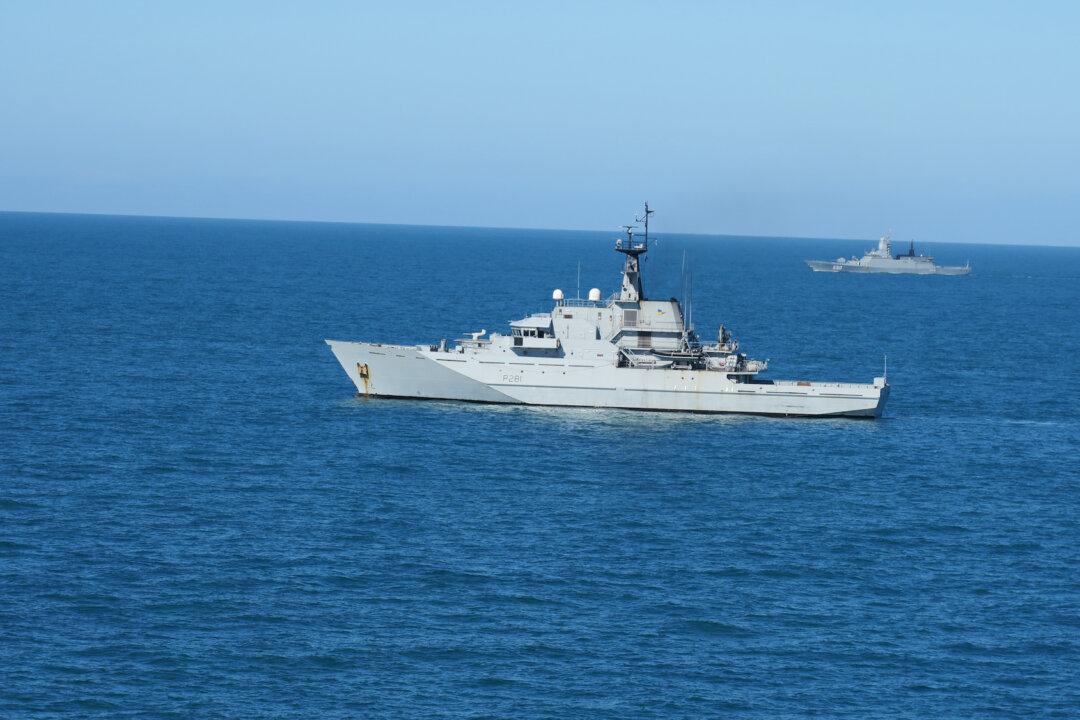Nine Russian warships have been tracked and monitored sailing close to British territorial waters, the UK government announced on Monday.
The Ministry of Defence (MOD) said that, over the last two weeks, eight British Royal Navy ships had watched “every move made by the Russians” as they sailed a variety of war vessels close to British waters.





